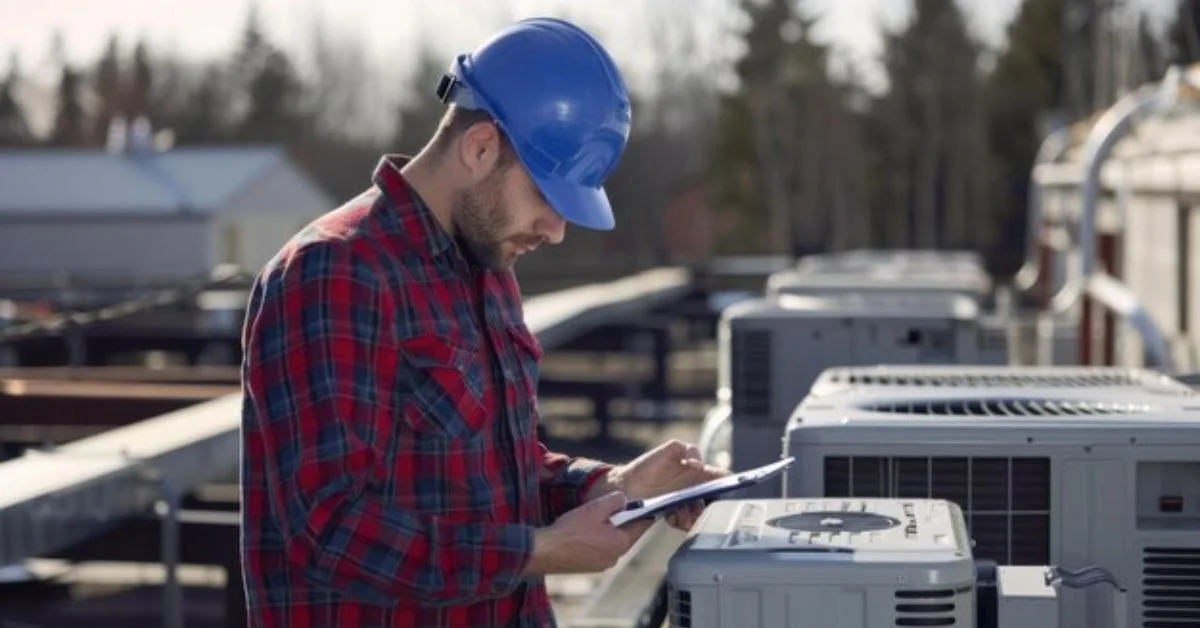Heating, ventilation, and air conditioning (HVAC) systems are essential for maintaining comfort in your home throughout the year. However, understanding how to maximize efficiency in these systems can be a challenge. Whether you’re aiming to reduce energy bills, improve system performance, or minimize environmental impact, this guide explores how to achieve HVAC efficiency without compromise.
What Is HVAC Efficiency?
Efficiency in HVAC systems refers to how effectively a unit converts energy into heating or cooling. High-efficiency systems use less energy to achieve the desired indoor temperature, leading to lower operating costs and a reduced environmental footprint.
Efficiency is often measured using specific ratings:
- SEER (Seasonal Energy Efficiency Ratio): Applies to air conditioners and heat pumps, indicating cooling efficiency over a season.
- HSPF (Heating Seasonal Performance Factor): Measures heating efficiency in heat pumps.
- AFUE (Annual Fuel Utilization Efficiency): Used for furnaces and boilers, showing how much fuel is converted to heat.
Understanding these ratings helps you select systems that match your efficiency goals.
Key Factors Affecting HVAC Efficiency
Several factors influence how efficiently your HVAC system operates:
- System Size:
- An undersized system will struggle to maintain temperatures, while an oversized one will cycle on and off, wasting energy.
- Professional load calculations are essential to determine the right size for your home.
- Ductwork Condition:
- Leaks, blockages, or poor insulation in ductwork can significantly reduce system efficiency.
- Regular duct inspections and sealing ensure proper airflow.
- Insulation and Sealing:
- Poor insulation in walls, attics, or basements forces your HVAC system to work harder.
- Sealing air leaks around windows, doors, and vents minimizes energy loss.
- Thermostat Settings:
- Incorrect or fluctuating thermostat settings can lead to energy waste.
- Smart thermostats offer precise control, reducing unnecessary system strain.
- Maintenance Practices:
- Neglecting maintenance leads to dirt accumulation, worn parts, and reduced efficiency.
- Regular cleaning, inspections, and tune-ups are critical for optimal performance.
Tips for Improving HVAC Efficiency
Maximizing HVAC efficiency doesn’t necessarily require a system replacement. Here are practical steps to improve performance:
- Schedule Regular Maintenance:
- Professional maintenance ensures all components are functioning correctly.
- Annual inspections identify issues before they escalate, such as refrigerant leaks or motor malfunctions.
- Replace Air Filters:
- Dirty filters restrict airflow, forcing the system to consume more energy.
- Replace filters every 1-3 months, especially during peak seasons.
- Upgrade to a Programmable Thermostat:
- Programmable thermostats allow you to set heating and cooling schedules, reducing energy use when you’re not home.
- Some models adapt to your routine for maximum efficiency.
- Ensure Proper Ventilation:
- Blocked vents or registers can hinder airflow, reducing system performance.
- Keep all vents clear of furniture, rugs, or debris.
- Use Ceiling Fans:
- Ceiling fans circulate air, reducing the workload on your HVAC system.
- In summer, set fans to spin counterclockwise to push cool air down; in winter, reverse the direction to distribute warm air.
- Seal Ductwork:
- Leaky ducts can lose up to 30% of the air moving through them.
- Professional sealing ensures conditioned air reaches its intended destination.
- Install Zoning Systems:
- Zoning divides your home into areas with individual temperature controls.
- This reduces energy consumption in unused spaces.
The Role of Modern Technology in Efficiency
Technology plays a vital role in improving HVAC efficiency. Here are some innovative features to consider:
- Variable-Speed Motors:
- These motors adjust airflow to match your home’s heating or cooling demands, reducing energy use.
- Inverter Technology:
- Found in advanced heat pumps, inverters adjust compressor speeds for precise temperature control and lower energy consumption.
- Smart HVAC Systems:
- Smart systems integrate with Wi-Fi-enabled devices, allowing remote control and monitoring.
- Energy usage reports and maintenance alerts keep you informed.
- Eco-Friendly Refrigerants:
- New refrigerants with lower global warming potential (GWP) reduce environmental impact.
Financial Benefits of an Efficient HVAC System
An efficient HVAC system offers more than comfort. It provides tangible financial savings, including:
- Lower Utility Bills:
- Reduced energy consumption translates to monthly savings.
- Longer System Lifespan:
- Less strain on components minimizes wear and tear, extending the life of your system.
- Increased Home Value:
- Energy-efficient homes are more appealing to buyers, boosting property resale value.
- Tax Credits and Rebates:
- Federal and state programs often provide incentives for upgrading to high-efficiency systems.
Transitioning to a New System: When Is It Time?
Even with regular maintenance, HVAC systems have a finite lifespan. Consider upgrading if:
- Your system is over 15 years old.
- Repairs are becoming frequent and costly.
- Your energy bills continue to rise despite optimization efforts.
- You’re planning major home renovations, which may require a more efficient system.
Choosing the Right Contractor for Installation
Professional installation is critical for achieving optimal efficiency. When selecting a contractor:
- Ensure they perform a thorough load calculation.
- Verify their certifications and experience with energy-efficient systems.
- Ask for references and check reviews to confirm reliability.
Climate Systems Air Conditioning & Heating is dedicated to providing expert advice and professional installation services tailored to your home’s unique needs. By working with trusted professionals, you can ensure your HVAC system operates at peak efficiency.
Maintenance as a Long-Term Solution
Efficiency doesn’t end with installation. Maintaining your HVAC system is vital for preserving its performance:
- Schedule regular tune-ups to address wear and tear.
- Clean and inspect ducts periodically to prevent airflow restrictions.
- Replace parts as needed to avoid system strain.
A Sustainable Path Forward
Maximizing HVAC efficiency is a commitment to both comfort and sustainability. By adopting energy-saving practices and upgrading to advanced systems, you can reduce costs, improve home comfort, and contribute to a greener future. Contact Climate Systems Air Conditioning & Heating to explore tailored solutions for enhancing your HVAC system’s efficiency.
If you find this article helpful, click here for more.









